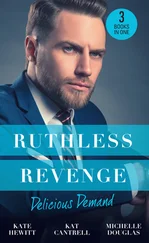At her desk, in her father’s sterile law offices, when she felt stupefied by the statistics she was compiling for some case or another, she would log on to the office’s AOL account and e-mail Daniel. Stefan, who still had had no luck finding a job, turned out to have the savvy to set up an e-mail account for Daniel (and not coincidentally himself) at the house. Don’t worry, Daniel wrote to her after she had complained one day that she was stuck, at sea with Melanie’s story, it’s okay to get lost . She contemplated every sentence he wrote because she knew he was trying to nudge her toward the unexpected. Surprise me.
How is it possible to know someone so well, as she now feels she knows Daniel, and know almost nothing about his life? Of course, she knows his son and that Daniel suffers each day with his agoraphobia, but outside of that she knows nothing. Does he have other children? What happened to his marriage? Why was he at Chandler? Was he working on another book? Whom did he vote for in the last election? She couldn’t have answered one of those questions, and yet there is a certainty within her that she knows him.
At the beginning of their second week of travel, her father puts aside his paper and begins to talk. Anyone watching the two of them sitting side by side in the crowded, stuffy, rapidly warming train car would have easily guessed they are father and daughter, the resemblance between them so apparent — the same light brown eyes that are almost hazel, the same long limbs, the same graceful hands, the same air of apology which hangs from their shoulders and hunches them inward. Ruth’s constant admonition to “stand up straight” throughout Isabelle’s childhood never really took. She is her father’s daughter and has learned to bow her shoulders against all possible onslaughts, just as he does.
That morning at breakfast Eli and Ruth had made sure to flagrantly ignore each other, the air between them sizzling with more resentment than usual. Isabelle and her brothers ignored the ignoring.
“Your mother’s having a hard time right now.” Eli starts the conversation as the train gathers speed away from the Rockville Centre station.
Isabelle mumbles, “Hmmmm,” and continues typing, her laptop angled so her father can’t read the screen.
“I’m worried about her.”
“Oh, Daddy.”
“No, really, this is different.”
And at that Isabelle feels compelled to close the computer, turn, and have a conversation she doesn’t want to have.
“She’s a creative person, Isabelle, and she doesn’t have an outlet.”
So am I! Isabelle wants to yell but doesn’t. Being home in the Rothman realm, she feels as though some entity is holding a hand over her mouth, muzzling every sentence she longs to shout.
“That’s why she gets depressed, you know. And snappy. She’s been searching so long without finding the right thing.”
“Maybe she isn’t a creative person, Dad.” Isabelle knows she sounds snappy herself. She tries harder to be gentle. “Maybe she wants to be but really isn’t.”
Eli thinks about that for a moment as the train stops at the Valley Stream station and he watches crowds of men, already sweating through their light-colored shirts, their suit jackets over their arms, push into the aisles, raising the temperature in the car just by their bodily presence.
“Well, that would be worse, then, wouldn’t it?” Eli finally says. “That would mean she’d be perpetually unhappy.”
“Dad, she is!”
“No, no, you mustn’t say that. That sounds so hopeless.”
Isabelle studies her father’s earnest, guileless face and realizes there’s no getting out of this conversation, which they’ve had countless times before, and that there’s no good resolution to it. They will discuss Ruth’s dissatisfaction and her struggles and her migraines and her “courage,” as Eli calls it, to forge ahead to find herself until the train pulls into Penn Station. And they will get nowhere. They never have.
The forty-minute ride each morning gives Eli the opportunity to vent. Isabelle is relieved to discover that he seems too caught up with workday events to continue the conversation on the way home. He has set aside the morning commute to unburden his heart.
At first his comments are all couched in concern for Ruth, but after not too many days the morning monologues become laments about his own lost life, his bad choices — marrying Ruth being one of them.
“Why did you, then, Daddy?” Isabelle asks one morning, when she can’t bear the thought of his laundry list of could-have-been’s and should-have-been’s gathering steam.
Eli doesn’t answer right away. He stares out at the landscape whizzing by, baking in the already brutal sunshine. His voice is tinged with wonder and a certain pleasure as he tells Isabelle, “I couldn’t believe this amazing creature who was your mother back then would even look at someone like me. But for some reason — and I still don’t know what it was — she saw something in me.” For an instant he seems proud of the younger Eli. “So I threw away all judgment and let passion have its way.”
In the sweltering train — no air conditioning today — Eli shakes his head at his own foolishness. “A big mistake.” And then he repeats it to drive home the point. “ Big mistake. And I’ve been paying for it my whole life.”
Isabelle turns away. She so doesn’t want to hear these things from her own father.
“I should have chosen someone solid. Someone steadfast.” Eli looks at his daughter’s profile as she feigns interest in the passing terrain, anything to avoid eye contact, anything to discourage these inappropriate revelations. But her father isn’t done. “Someone like Nate.”
Isabelle shrugs. He’s right. Nate is steadfast. He calls her daily from Washington, D.C., where he’s gone to establish himself, working as an intern in the Justice Department before law school at Georgetown in the fall. “Good contacts,” he explains to Isabelle, and she’s sure he’s right. He plans ahead; his life all carefully mapped out, with her participation already drawn in. All she has to do is acquiesce and all the moving parts will glide effortlessly forward. He’s guaranteed her that — success, security, predictability. Why doesn’t she come down to D.C. and work at something—“It doesn’t matter what,” he tells her — while he goes to law school? That question has become the daily refrain. She’s not doing anything that she can’t leave behind, is she? What’s stopping her?
She finds she can’t answer him. And she hates this about herself, that she clings to the well-worn path of least resistance. All those years of refereeing between Eli and Ruth have robbed her of the ability to speak her mind, deference a habit so deeply ingrained in her now that she can’t find a way to say to Nate, “You. It’s you that’s stopping me,” without sounding cruel. And so she listens to his monologues and pretends interest and deflects his questions. One thing is clear to her, though: after talking with Daniel for five months, she no longer wants to talk to Nate at all.
“Yes,” she tells her father now, “Nate is steadfast”—to stop the discussion, to have that agreement between them so that Eli will feel he can stop talking. But he’s not done yet. He needs her to know that it is important — no, crucial, because she is on the cusp of all things bright and beautiful — that she make the right choices. Everything hangs in the balance, as Eli knows. Everything.
“Don’t live a life of regret,” he tells his daughter.
“How do you avoid that?” Isabelle finally asks him one morning when she’s heard the same admonition many times.
Читать дальше












